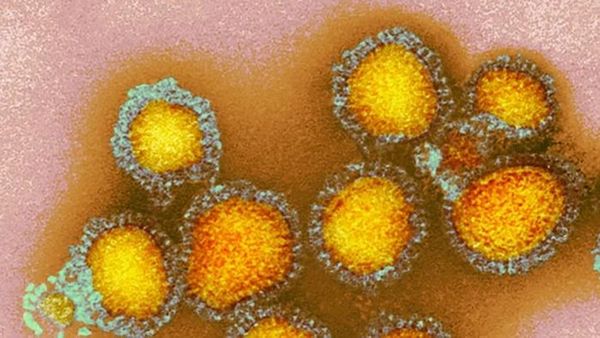
Before I learned about bacteria, I blamed my acne phase on sugary treats, stress and my parents for gifting me a terrible mashup of genetics.
Now, I’m a walking billboard for what not to do when you have acne. Listening to the wise counsel of fellow 19-year-olds, I decided to pop all those bad boys instead of properly treating them. Seven years later, I still have scars in my T-zone as a reminder of that mighty mistake.
What’s worse is, I still take what my mates say as gospel. Word-of-mouth is glorious for movie or book recs, but when it comes to our skin, we’ve gotta listen to the bloody experts.
We asked Dermatologist Dr Leona Yip to clear up all the claims we’ve heard about acne over the years. So, chuck on your beret and fake moustache (à la Jamie Hyneman), we’re busting some myths today, baby.
#1 You have acne because your skin is dirty
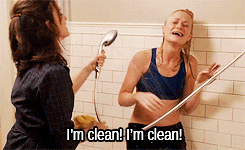
Remember this fresh hell? When you’re already feeling self conscious about your breakouts, the last thing you want to hear is someone hypothesise it’s because you have dirty skin or bad hygiene. Gee, thanks!
But you can shut that down immediately next time. Dr Yip is busting this myth.
“This is absolutely not true,” she says. “Scrubbing your face too hard or cleaning it too frequently will cause skin irritation and will not prevent acne.”
Acne comes down to genetics and bacteria. You sure has hell can’t change your genes, and that bump-inducing bacteria – Propionibacterium acnes or P. acnes – is already on your skin. When the bacteria gets caught in a pore, it leads to a pimple.
#2 Chocolate and fried food cause pimples
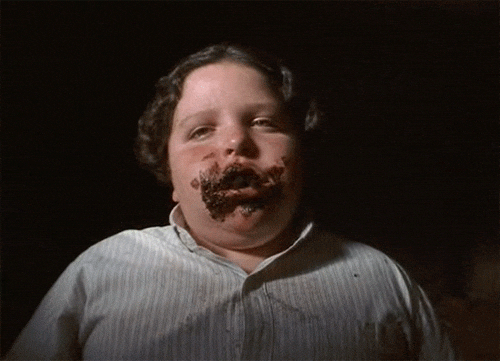
Excellent news, fam. Dr Yip says that choccie and greasy foods like pizza, fries and burgers don’t actually worsen acne. Heyo, time to go ham!
“Although a popular myth, it is not true that eating chocolates and greasy foods worsen acne as this does not directly correlate with an increase in skin sebum production,” explains Dr Yip. “However, wearing heavy makeup and exposure to greasy environments (like working in a fast food kitchen), may well increase the risk of breakouts due to grease clogging skin pores and causing skin inflammation.”
#3 Moisturiser makes pimples worse

“People with greasy and acne-prone skin often stop moisturising,” says Dr Yip. “Again, not true. Moisturising with an oil-based moisturiser may aggravate skin congestion, but non-comedogenic lighter lotion and cream-based moisturisers do not cause acne.”
In fact, dry skin makes your skin produce more oils. Excess oils can feed acne-causing bacteria and lead to even more congestion. So, get moist, mates!
#4 Pop your pimples to get rid of them quickly
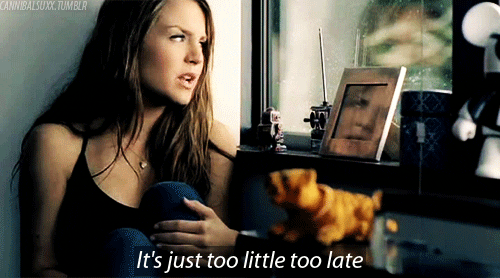
Well, well, well. I spoiled this one up top dredging up my trauma. Dr Yip suggests you avoid popping pimples because it may cause infection and scarring. Instead, tackle the issue head-on by targeting acne-causing bacteria to try and get rid of them.
“Start with over-the-counter treatments with a complementary skincare routine that a pharmacist can recommend,” she says. “Persistent or more extensive breakouts, especially cystic acne, will require medical treatment by a dermatologist or GP to prevent scarring.”
#5 Stop treatment if it irritates your skin
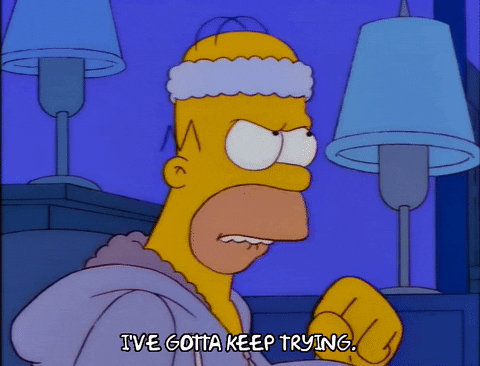
Giving up on treatment too early is another mistake we make. Dr Yip advises that topical acne treatments tend to cause skin discomfort within the first few weeks of use. So, don’t be alarmed – our skin adapts.
“Improvements also do not happen over days – it often takes at least a few weeks to start seeing improvements with treatment. Consistency is key.”
From here on out, we will be tuning out our mates when they share whack skincare tips.
If symptoms persist, talk to your health professional. AU-BZC-2200033
The post We Asked A Derm To Clear Up A Bunch Of Acne Myths, Bc I Really Wanna Pop These Bad Boys appeared first on PEDESTRIAN.TV .

